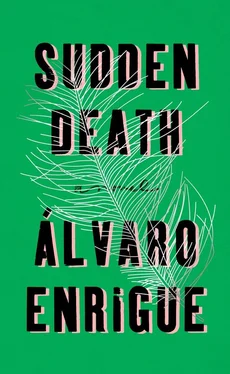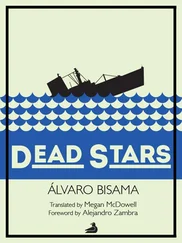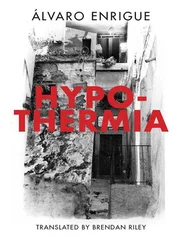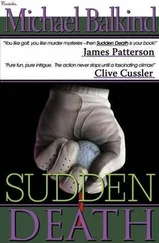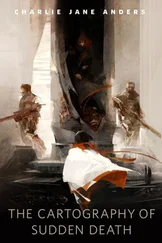By this Carnival Tuesday morning, the prince had spent one thousand two hundred and seventy-six nights going to sleep in the hope that this bitterest of ill fates would pass from his broken body, maimed and mutilated and in chains, as if chains were necessary.
Since the night when a squad of Tlaxcaltecas had captured him as he tried to leave Mexico City to muster a last stand at one of the ports on Lake Texcoco, Cuauhtémoc had prayed to all his gods every day to bring him death. For reasons that have never been clear, Hernán Cortés decided to keep him alive along with Prince Tetlepanquetzal, who was by his side on the last royal barge afloat on the Lake of Mexico.
The emperor Cuauhtémoc, a young man who had organized the defense of Tenochtitlan the best he could and who had no kin left to inherit the crown, was captured on August 13, 1521, Saint Hippolytus’s Day. The news spread immediately through the city, whose defenders simply went out into the streets unarmed, possibly hoping for a drink of fresh water before they were butchered: on the first day of the siege the Spaniards had cut off the water supply, and Lake Texcoco was sulfurous and poisonous. They came out of their houses in a state vacillating between defiance and apathy: they had sworn to their gods that if there was no City of Mexico—“the root of the world”—there would be no Mexicas, so they surrendered themselves to the ritual of being sacked, raped, beheaded, and devoured by dogs, almost happy to go quickly.
There was a muted quality to the fall of Tenochtitlan. Though it caused more planetary aftershocks than the equally monumental falls of Jerusalem and Constantinople, and though in all three cases entire worlds were toppled and swallowed up by the pool of blood and shit that history leaves when it goes mad, in Tenochtitlan everything was filtered through the melancholy of guilt, as if the men who finally got their way were certain that they were breaking something they wouldn’t be able to put back together again.
There isn’t a trace of gloating in the letter in which Cortés tells the king that the spine of the Aztec empire has finally been broken and its Mexica rulers crushed. It’s as if the three months of siege had left him as exhausted and prey to hunger and thirst as those he had defeated. There was no victory ceremony or triumphal procession. A Te Deum was said amid the ruins, and the next day everyone embarked on the tedious task of reconfiguring the smashed city.
The thirteenth of August, 1521, survives in the written record only as a perfunctory accounting of the arrest of Cuauhtémoc, and there would have been no hero in this war — and perhaps no villain either — if not for the fact that when the pillaging Spaniards reached the palace of Moctezuma, it was discovered that it hid no treasure. The gold won in battle wasn’t nearly enough to pay the troops who for years had been desperate to get their deserts, and the captain general decided, in the first of his terrible administrative decisions, to keep Cuauhtémoc alive, to use him as a scapegoat, torturing him in the public plaza to make him confess where he was hiding the mountains of gold that clearly didn’t exist.
They scalded the emperor’s hands and feet with boiling oil. They didn’t kill him even though he begged Cortés, politely at first, then in screams, and finally with curses. Bernal Díaz del Castillo — or whoever wrote his testimony — has nothing but pity for the emperor and shame on behalf of his captain in his account.
One thousand two hundred and seventy-six nights after the torture, on Shrove Tuesday, 1525, when an Indian by the name of Cristóbal Mexicaltzingo entered the improvised cell in what is now Campeche to bring the emperor and the lord of Tacuba before Cortés, they were smiling.
Cuauhtémoc was strangled that same morning, in the dark and without trial. A rumor accused him of planning an impossible mutiny of cripples against the conquest expedition of Las Hibueras and El Petén, on which the captain general had dragged him in chains so as not to leave him alone in a Mexico City still under reconstruction.
It’s funny in a way that he was killed on Carnival Tuesday: maimed as he was, and in chains, he played the rather obvious part of the ugly king who must die so that the world is submerged in the primal waters of Ash Wednesday and forty days later rises up, saved.
As soon as the prince of Tacuba and the emperor of Mexico had breathed their last stale breaths, Cortés gave the order for their heads to be cut off and displayed in the most visible spot of the town where they had spent their last night, for the edification of anyone who might think it was a good idea to mutiny in the confusion of the jungle. It was the Indian Cristóbal who was charged with severing the heads and mounting them on two spikes driven into a pochota tree. The local cacique didn’t protest at this scandalous profaning of the village’s sacred tree: he had been doing his best to survive by putting on a convincing show of Christianity ever since an army of starving men had sprung from the woods like a nightmare on the morning of Carnival Monday.
Before Cristóbal set the imperial head on its stake, Cortés asked him to shear it. Make a bundle of the hair and take it to Doña Malinche, he said to the Indian, folding down his sleeves as he sat for breakfast in the cacique’s hut. Tell her, he went on, to weave me a scapular that will grant me the protection of God, the Holy Virgin, and Guatemotzin’s demons. From around his neck he took a chain with a silver medallion of the Virgin of the town of Guadalupe in Extremadura and gave it to him: Tell her to set this in it.
The rest of the emperor’s body was hacked to pieces, burned, and scattered. Cortés had read his Julius Caesar and he didn’t want anyone to steal the body of this Vercingetorix that fortune had set in his path. That was why he had him brought to the Términos Lagoon, and that was why he disposed of the body before the most organized southern cities could see any kind of message in it.
He forgot all about the scapular that he had ordered to be made because, liberated of Cuauhtémoc, he turned his back on all his recent past; once begun, he also got rid of Malinche, his translator, political adviser, military strategist, and lover. He ordered one of his men to marry her and take her back to Orizaba. As a wedding gift he gave them the village’s communal land and the Indians who worked it, to do with as they pleased.

Racket.In ball games it is a thick board with which the ball is struck. It is about two spans, with a grip or handle, which grows broader until it ends in a kind of half-moon. It is generally covered in parchment, which is stuck on with glue so that no stroke may score the board.
Diccionario de autoridades, Madrid, 1726
The Second Burning of Rome

A portrait that does Pius IV justice would have to be taken at table — a painting of light and shadow in which he presides over a grand Baroque dinner. After all, his papacy was the amuse-bouche of all the pyres of modernity.
In this ideal portrait of Pius IV, he sits with a glass of white wine in one hand and a fistful of almonds in the other. His royal purple soutane is tacky with salt, his beard greasy from the thick slices of wild boar sausage he has eaten. By his side is a small table, upon which rests a china plate with strips of tuna. The pope, food, wine. But there is more: The table is set on a patio. It is nighttime, there are torches; there is an army of servants swaddled in velvet, attentive to the wishes of His Holiness. In the portrait, Pius IV is up in the heights, watching Rome burn — the pyre and modernity, the pyre of modernity making room for itself — and then all Europe, the flames, his face alight. Europe had overheated with the discovery and occupation of the Caribbean, the conquest of Mexico and the subjugation of Peru, the rebellions of the reformist bishops. He, a practical man with no agenda, only contributed the spark that started the blaze when he signed the accords of the Council of Trent into law.
Читать дальше
